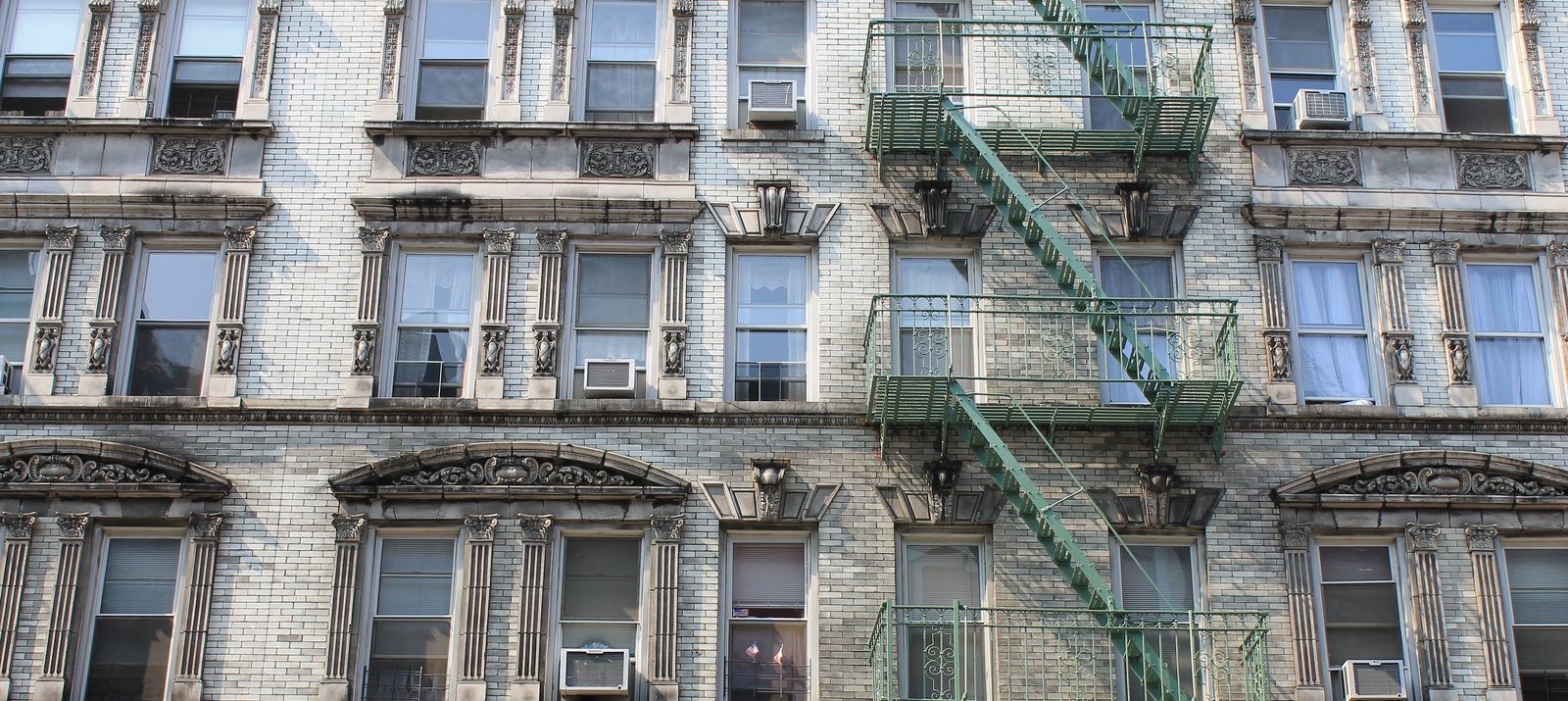You thought moving to a tiny NYC apartment was the hard part. But getting a New York apartment is a real nightmare. Just when you think you have one, someone else swoops in. Or, just when you think you’ve found something in the budget, more hidden fees emerge.
We compiled this list of 19 essential NYC apartment-hunting tips to make sure you don’t get scammed, stressed, or put out on the streets.
Read them all before you schedule any apartment tours.
Relocate with Confidence—Our Expert Movers Are Ready to Help!
1. Figure out your budget — and stick to it.

The insanely competitive New York City housing market requires you to be flexible. You need to be able to move fast, put up stacks of documents and cash, and give up on your dream of a washer/dryer in a unit.
But one thing you shouldn’t budge on? The amount of money you’re willing to spend.
Before you start responding to apartment listings, sit down and seriously look at your expenses.
Write out what you spend each month on groceries, gym membership, the internet, Netflix, and your other expenses. Be specific and honest. It isn’t going to help you to leave anything out.
Then, once you have a total, look at your salary and figure out a price range. Set a ceiling for the absolute most you could spend on rent and not starve. Once you’ve done that, don’t change the number, no matter how spacious the bedroom closet is.
As a heads up, most landlords in NYC require your gross annual income (before taxes) to be 40 times your monthly rent.
Learn more: 15 Best Space-Saving Furniture Ideas for Small Apartments
2. Remember that rents are lower in the winter.
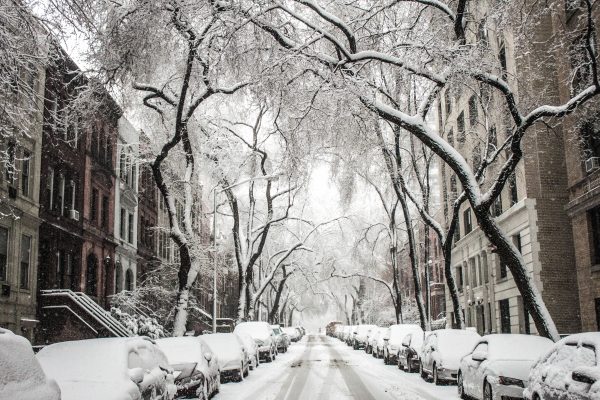
No one wants to move in the middle of a snowstorm, but December through March is the best time to rent an apartment in NYC. The winter is considered “off-peak” for housing because the summer months are when most people move (just consider all the college grads).
When it’s warm out, you can expect rent prices to be outrageous and places to go in minutes. In the winter, there’s less demand, which means you can usually get a better deal. The rent might be lower, or the landlord may even offer to pay the broker’s fee to get the spot filled.
3. Make a list of your must-haves.
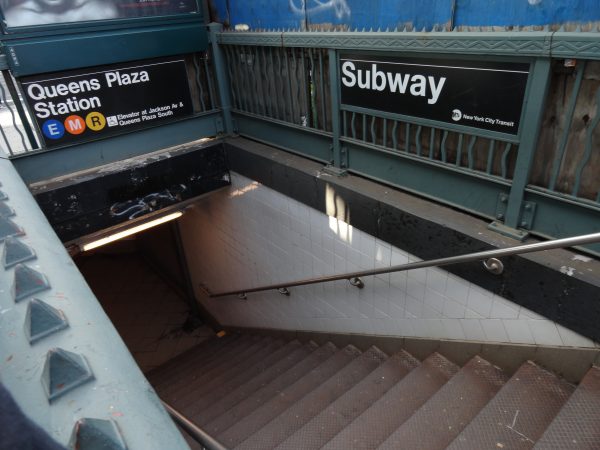
Okay, so you’ve figured out your budget and your time frame. Now it’s time to decide on your must-have checklist.
Your apartment-hunting checklist should be realistic, so don’t make it too long. Everyone has requirements for their living space, and it’s best to nail those down early.
Have a pet or plan on getting a pet in the near future?
Then it’s only “pets allowed” places (and these 17 awesome pet-proofing tips) for you.
How close does the subway have to be? What about the laundromat? Are you comfortable living on the first floor or the sixth floor in a walk-up?
Think carefully about what you’d like your daily life to look like, then write down the things that would make that possible.
4. If you’re apartment hunting with another person, include them in the process.

When you’re looking for a micro-apartment, studio, or one-bedroom for yourself, you call all the shots. But when there’s another renter involved — like a roommate or significant other — you have to make them an equal partner in every decision. That means you need to merge that person’s budget and must-haves with your own and respect their concerns each step of the way.
Write down (or just mentally gather) your thoughts on the spot, but do not share them. Then, ask the other person for his/her honest opinion. If it sounds a lot like yours, say so and move forward. But if it doesn’t, keep on looking.
This way, you can both independently determine if a particular apartment will make you happy. You won’t just say that because the other person did, which can lead to resentment later on after you’ve moved into a place you don’t actually like.
Learn more: 7 Renter-Friendly Upgrade Ideas for Apartments in 2025
5. Prepare your documents early.
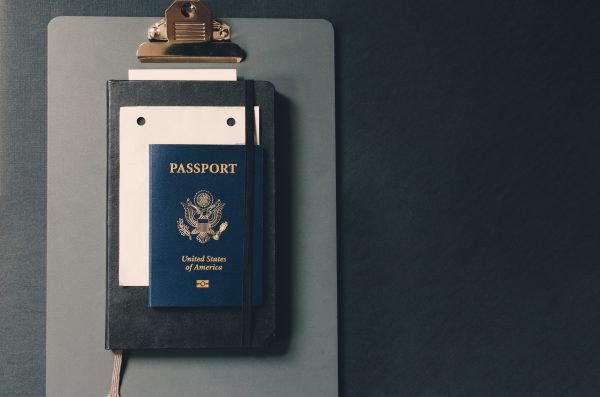
Rental units move fast and require excessive documentation. You can easily lose your dream apartment if you don’t come armed and ready with the (admittedly absurd) list of papers most NYC landlords expect to see before they let you sign on the dotted line.
According to U.S. News & World Report, you should have the following items:
- A copy of your most recent pay stubs
- Tax returns from the past two years
- A color copy of your driver’s license or passport
- A current credit report
- A list of personal and professional references
If you’re using a guarantor, you’ll need some extra documents. A guarantor is somebody who basically vouches for your financial responsibility. The implication is that if you fall behind on the rent, your guarantor will cover it.
Guarantors are often necessary if you don’t make 40 times the monthly rent. (Most landlords stick to this figure.) Your guarantor will usually need to make even more — 80 times the rent — and live in the tri-state area. The guarantor will also need to provide some ID, so make sure to give your guarantor a heads-up on that.
6. Google your brokers and/or landlords.
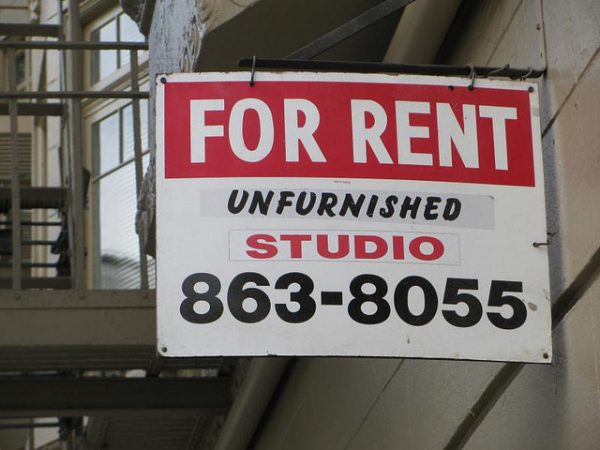
Unfortunately, there are some shady people controlling New York City property, and they aren’t always obvious. Google a broker or agent’s name before you share any important personal information with them. If Google returns links to reviews titled “SCAM ARTIST,” back away fast. But if there are no alarming red flags, proceed.
Do the same for the landlord of any place you’re strongly considering. There’s actually a list of the “100 worst landlords in New York City” compiled by Public Advocate Letitia James. It’s based on the number of Housing Preservation & Development (HPD) and Department of Buildings
(DOB) violations they’ve accrued. Scan it for your prospective landlord before you sign anything.
Then, search Google News for any lawsuits brought against your landlord and poke around the
web for complaints on other sites.
Learn more: 15 Safest Neighborhoods In New York 2025
7. Bring a friend.

If you’re sharing your new place with a roommate or significant other, you have a built-in buddy to go with you on apartment appointments. But if you’re searching solo, it’s best to call on a friend to accompany you.
This isn’t just a safety precaution for women. As Psychology Today points out, having someone you trust by your side is good for your mental space. It’ll calm you down, which will help you avoid rash decisions you’ll regret.
Plus, your friend can serve as a natural sounding board for your concerns. If that friend happens to be a seasoned city dweller who knows the right questions to ask, even better.
8. Ask if pets are allowed.
Every building has a defined policy on dogs, cats, and other animals. Some are all-inclusive, some are cats only, and others don’t allow any furry friends at all.
It’s best to know this upfront since pets are part of the package deal. Ask the broker (or landlord) what kind of animals — and what kind of breeds — are allowed in the building. Then, ask if there are any additional fees you’ll need to pay because sometimes your pet gets factored into the security deposit or monthly rent.
Learn more: How To Safely Move With Dogs And Cats: The Ultimate Guide
9. Check for major appliances — and a functioning smoke detector.
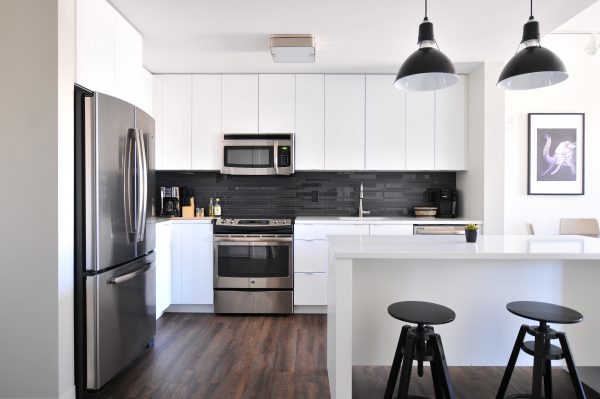
Most apartments you tour will have blank walls, empty floors, and closets free of Clutter. But you should see a refrigerator, stove, and kitchen sink in every single one. Make sure they all work. If anything is missing or faulty, press for a concrete answer about when that fridge will be fixed.
You should also locate the smoke and carbon monoxide detector. Then test it. Property owners are legally required to provide at least one “approved and operational detecting device” in every unit. Plus, this concerns your safety, so hold them to it.
10. Check your cell reception.
Did the service bars on your phone drop the second you walked through the door?
Pace around the entire place and see if there’s any change in your cell reception. Having to make your calls from certain corners might be annoying, but it’s doable.
Not being able to make any calls from your home? Unacceptable.
11. Ask if utilities are included.
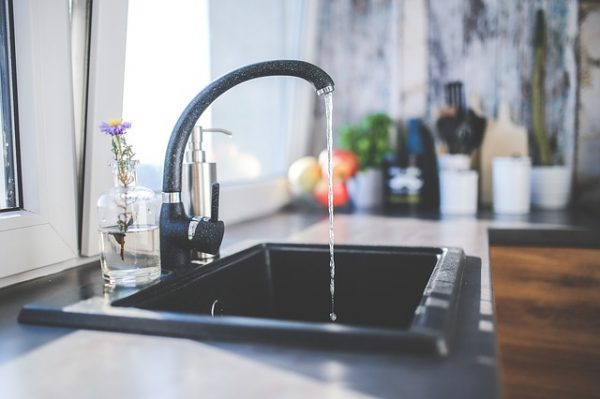
Are utilities included? If they aren’t, how much are they going to cost?
You should try to estimate what your heat, electric, and/or water bills might be if you’re expected to shoulder those fees yourself. They can add up, and they might even set the place over your budget.
Learn more: 8 Essential New York City Living Hacks for a Smoother Experience
12. Scan for signs of rodent life.
If your prospective place has had bedbugs in the past year, you’ll know — the landlord is bound by law to disclose that information. But if the apartment has had rat or mouse problems, you won’t.
There’s no legal requirement for landlords to tell you about rodent issues, so you have to do some research yourself. Time Out New York recommends you search the cabinets, especially the ones under the sink, for traces of unwelcome pests.
There’s also the New York City Department of Health and Mental Hygiene’s Rat Information Portal that lets you search addresses for rat inspection data. It’ll tell you if the place has “active rat signs,” “problem conditions,” or “passed inspection.”
13. Take measurements and pictures.
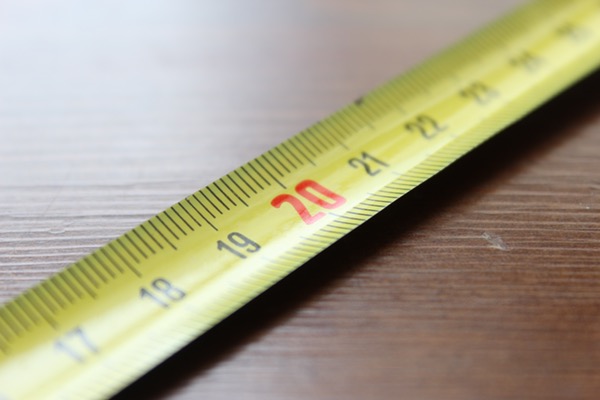
No matter how good you think your memory is, you’re not going to remember the exact layout of each place you see. Or whether the living room can fit your current couch and coffee table.
When you arrive at a new place, take a picture outside the building, maybe of the exact street number, so it’s easier to remember. Then, snap photos of each room in the apartment and the insides of the closets.
After that, it’s time to pull out your tape measure. Bring it to every appointment along with all the documents we discussed earlier. Take some quick measurements of the doorway and rooms so you know if you can push your headboard through the door and into your bedroom.
14. Find out the fees.

You’ve heard of those mythical “no-fee apartments.” You know, the ones where you don’t have to pay an additional 15% to a broker who brought you to the place. We’re not saying they don’t exist, but we are saying they’re incredibly difficult to find.
While Brick Underground has a list of the eight best websites for finding a no-fee apartment in NYC, one of which is Naked Apartments, you should still brace yourself for that 15% fee (plus a security deposit) just in case.
Also, watch out for scams. The HPD notes that “key money,” or fees for supers and/or doormen, is illegal. And if your place is rent-stabilized, the security deposit cannot be more than one month’s rent.
15. Look for rent-stabilized apartments.
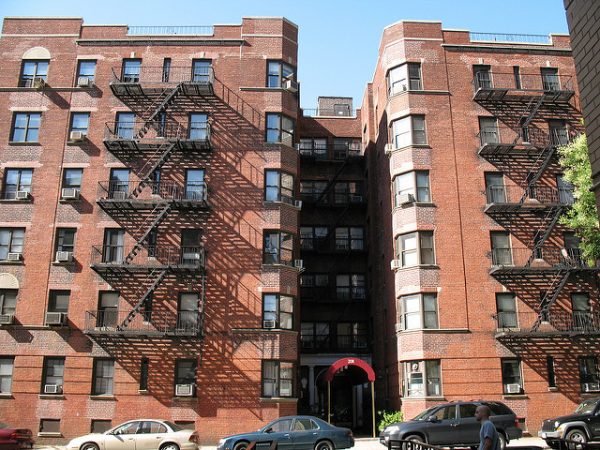
Now, you may be wondering what exactly “rent-stabilized” means. Any rent-stabilized unit is protected against dramatic price spikes. Your rent can still go up, but it can only be adjusted annually by the NYC Rent Guidelines Board. Thankfully, the adjustments tend to be $50 rather than, say, $500.
Another perk of rent-stabilized apartments:
You’re guaranteed the right to renew.
If you don’t want to stay in your place when renewal time rolls around, you’re welcome to leave. But your landlord still has to ask you if you want to renew before other tenants are considered.
Rent-stabilized leases are also much more attainable than rent-controlled leases, which prohibit the owner from changing your rent at all. While the Rent Guidelines Board estimates there are over one million rent-stabilized apartments in NYC, it puts the number of rent-controlled apartments at roughly 27,000.
Rent-controlled apartments tend to stay in families who’ve owned them since the ‘70s, and the Rent Guidelines Board estimates that, eventually, there will be zero rent-controlled apartments.
16. Spend some time in the neighborhood.

You can’t get a true sense of a neighborhood from the 30 minutes you spent there on a Saturday afternoon with a broker. If you’re unfamiliar with the area but want to get a sense of where you’d be living (note: this is a good idea), explore the neighborhood on your own.
Spend an hour in a local cafe. Walk a few blocks. And most importantly, check out the neighborhood at night. You need to get a sense of what the area is like at all times of day so you can make sure you feel comfortable living there.
17. Learn the alterations policy.
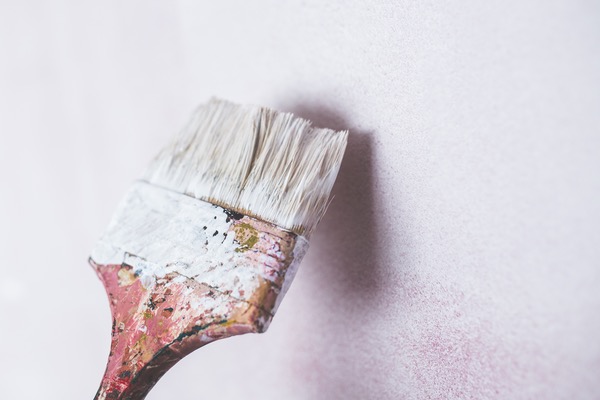
Let’s say you’ve seen a place you love … only the weird paint on the walls has got to go. Don’t assume you can just slap on a fresh coat of sage green or Feather wallpaper once the apartment is yours.
As Refinery29 explains, most leases require you to obtain express permission from the owner before you make alterations (even seemingly small ones) to the unit. Even if you do get the green light from management, you may still have to return the walls to their original shade before you move out.
And since we’re discussing lease specifics …
18. Read the lease carefully.
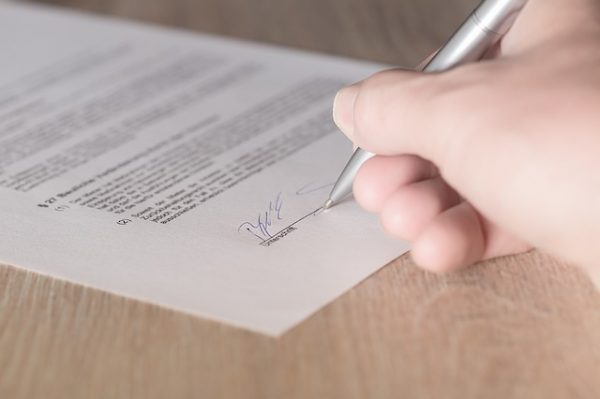
By the time you sit down to sign your lease, you’ve probably been through so much apartment-hunting stress that you’d sign away your first-born child without a second thought. But you need to read the whole thing very carefully, or you could wind up missing a major problem.
If the jargon confuses you, ask a lawyer to look it over. Can’t afford a lawyer? Ask a friend who passed the bar, or at the very least, read up on tenant rights at nyc.gov.
If something in the lease doesn’t align with what you were promised, take it up with the owner before you sign or initial a page. It could simply be a mistake, but you can’t expect good faith or a verbal agreement to trump a legal document once it’s signed.
19. Let Clutter store your extra stuff.
Your brand-new apartment is under budget, beautiful, and blocks away from a great grocery store. There’s just one tiny hiccup:
You downsized two whole closets, and there’s no way all your clothes will fit in the IKEA dresser you’re bringing along.
Luckily, there’s a way to keep all your clothes and the cool apartment:
Use Clutter.
Schedule a pickup, and we’ll come get your extra sweaters and scarves. Next, we’ll transport it over to our secure temperature-controlled storage facility. We’ll also create an online photo catalog of your stuff so you always remember what you have in storage.
The best part:
When you want something back, you won’t have to dig through boxes in a dusty self-storage unit. Simply log into your Clutter account, select the item’s photo, and we’ll deliver it to you.
With Clutter, there are no shifty landlords, rodent problems, or faulty stoves. Just affordable full-service storage, no matter where you live in NYC.
Top 5 Apps to Find Apartments in NYC (Without the Stress)
Apartment hunting in NYC can be a daunting experience. Between sky-high rents, tiny spaces, and blink-and-it ’s-gone listings, it can feel like a full-time job. However, we’ve compiled a list of the best resources to help you find an apartment that meets your needs, simplifying the process.
1. StreetEasy – The New Yorker’s Go-To
For those seriously searching for an apartment in NYC, StreetEasy should be your first stop. It has the most comprehensive, NYC-specific listings out there—including rentals, no-fee options, and by-owner posts.
- Best for: Neighborhood-specific filters, price trends, and real-time alerts.
- Bonus tip: Utilize the ‘no-fee’ filter to avoid broker fees.
2. Zillow – Big Platform, Big Reach
Zillow is not only for buying homes; its rental section is vast. You can schedule tours, apply, and message landlords directly from the app. It’s ideal for those asking how to find an apartment for rent in NYC without too much legwork.
- Best for: App-based apartment hunting with mobile alerts.
3. RentHop – Quality Over Quantity
If you’re tired of unreliable listings and misleading advertisements, RentHop ranks listings based on its “HopScore,” which evaluates accuracy, recency, and responsiveness. It’s a solid tool for anyone apartment hunting in NYC who wants to avoid sketchy situations.
- Best for: Reliable, verified listings.
4. Apartments.com – Clean and Easy Browsing
Apartments.com offers a clean interface with numerous filters, such as pet-friendly options and in-unit laundry (a rare luxury in NYC).
It’s perfect if you’re wondering how to rent an apartment in NYC and want all the deets up front.
- Best for: Detailed filters and high-res pics.
5. Facebook Marketplace & Groups – The Hidden Gem
Many individuals find rental opportunities in NYC through Facebook, often discovering listings before they appear on larger platforms. Neighborhood groups often post real-time listings, some before they even hit the big websites.
- Best for: No-fee rentals, roommate finds, short-term sublets.
Need Extra Space? Discover Our Flexible Storage Solutions!
Conclusion
Apartment hunting in NYC can be overwhelming, but with the right tools and approach, the process becomes more manageable. From using the best apartment apps to understanding how to get an apartment in NYC with the right paperwork, being prepared is everything. Whether you’re seeking a rental apartment in NYC or looking for a more affordable option, starting early and using trusted platforms can simplify the process. By remaining flexible and well-prepared, you’ll find an apartment in NYC that aligns with both your budget and lifestyle.
FAQs for How to Find an Apartment in NYC
1. What is the best way to find an apartment in NYC in 2025?
The best way to find an apartment in NYC is to use a combination of trusted rental websites like StreetEasy, Zillow, and RentHop, along with the best apartment apps that offer real-time alerts and detailed filters. Being prepared with paperwork and staying flexible with neighborhoods will improve your chances. These tools streamline your NYC apartment search and help you stay competitive in a fast-moving market.
2. Is it difficult to find an apartment in NYC?
Finding an apartment in NYC can be challenging due to the low supply and rapid turnaround. Apartment searching in NYC may involve swift decision-making, solid financial qualifications, and thorough preparation. Nonetheless, with the proper resources and knowledge of how to locate an apartment in NYC, the process can be much easier.
3. How can I find an affordable apartment in NYC?
To find an affordable apartment in NYC, start by searching in lower-cost boroughs like the Bronx or certain areas of Queens. Use apartment-hunting apps with filters for rent caps and no-fee listings. Timing your search during the winter off-season and checking local listings or sublet groups can also help you find apartments in NYC at better prices.
4. Which borough in NYC has the cheapest rent?
The Bronx usually provides the lowest rent in NYC. Areas such as Fordham, Kingsbridge, and Soundview have cheaper rental rates compared to Manhattan and Brooklyn. If you are keen on renting an apartment in NYC on a low budget, the Bronx is where you should start looking for your apartment.
5. What do I need to get approved for an apartment in NYC?
To get approved for an apartment in NYC, you usually need proof of income (often 40 times the monthly rent), a good credit score, and references. Having these documents ready can speed up the application process. If you do not meet the income requirement, many landlords accept a guarantor. Being financially prepared and responsive is key to securing a rental in a competitive market.


